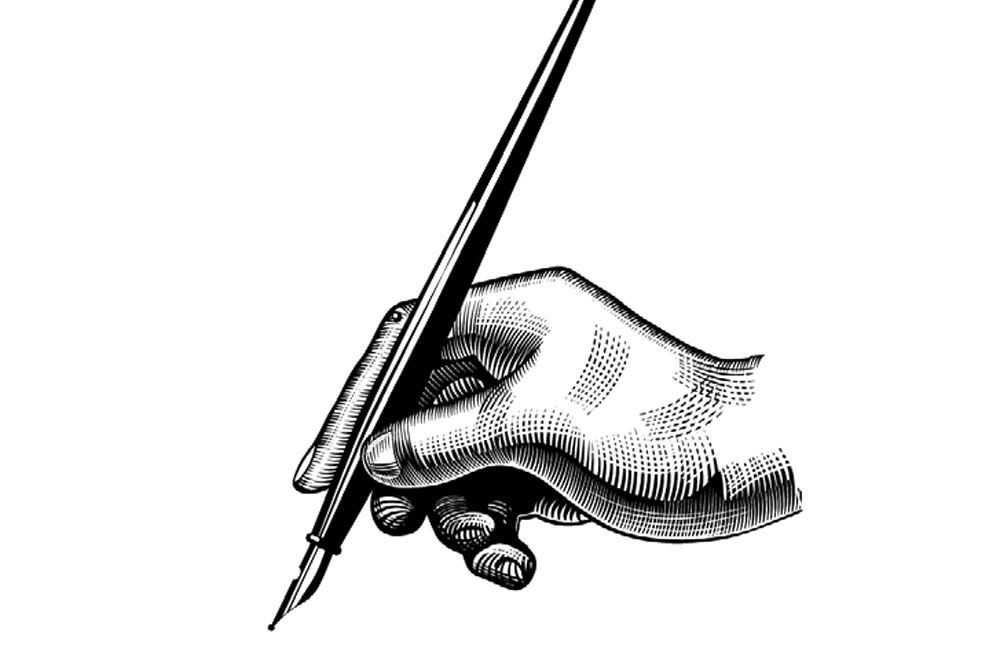Columns | Open Diary
Macaulay’s Orphans
The exaggerated reliance on English
 Swapan Dasgupta
Swapan Dasgupta
 Swapan Dasgupta
24 Feb, 2023
Swapan Dasgupta
24 Feb, 2023
FOR THOSE OF us who know multiple languages, there is one we are most comfortable with. It’s the language we think in and, in some cases, even dream in. My own experience is slightly different: I dream (and occasionally speak in my sleep) in my mother-tongue, Bangla. It’s also the language spoken at home and even with the dogs. However, I must confess that I think in English. What that means isn’t merely that I express myself best, both in speech and writing, in the language that was introduced to India by our colonial masters. My powers of abstraction and the ability to conceptualise are invariably in English.
I presume—and my ideological adversary Jairam Ramesh never fails to point this out—this ability or disability (depending on your inclinations) makes me quite unhesitatingly, one of Macaulay’s children or, better expressed, Macaulay’s orphans. This exaggerated reliance on English wasn’t something my family bequeathed. Both my grandfathers were completely fluent in English, one was among the first Indian graduates of Stanford University and the other was awarded a CBE in the early 1940s. Yet they were unambiguously Bengali, with deep roots in local society. My parents never benefited from an overseas education and, like most of their friends, relatives and colleagues, also thought in Bangla.
I blame my cultural uprootedness on a school education that was entirely moulded by the Church of England (CoE). Although after Independence the Anglican Church rechristened itself, first as the Church of India, Pakistan and Burma and, subsequently, the Church of North India, it was guided almost entirely by the CoE ethos. This included the prayers, hymns and the church service which were quintessentially English. For me, the greatest benefit of this sustained exposure to the church service was the deep understanding of English society and culture, something that stood me in very good stead during the 11 years I spent in the UK. It is difficult to say whether the constant lessons from the King James’ Bible and the use of the Book of Common Prayer (now, alas, in disuse by the new-fangled CoE) improved my awareness of idiomatic English. I somehow suspect it did. In any case, it deepened my abiding interest in British history—a subject that has few takers in contemporary India, but whose disappearance from the consciousness of today’s Indian historians will impair the studies on modern Indian history.
School plays a very important role in shaping both the mind and the acquired skills of students. The six years I spent at La Martiniere, Kolkata, laid the foundations of my subsequent intellectual development. This may appear strange since La Martiniere, from the 1960s to the mid-1970s, was not known for fostering academic excellence. Instead, apart from sport, in which it excelled, the school had a more established reputation as a place that produced well-spoken and well-mannered boys, usually from good families. Those were the boxwallah days in Kolkata and it was routine for many of the La Martiniere students to get a manager’s job in some British-owned company where conviviality and clubability were perceived as desirable (and obligatory) attributes of good leadership.
I was fortunate that the Class of 1971, particularly those of us who opted to study the humanities, was markedly different. In earlier years, the humanities stream was set aside for students who were deemed to be incapable of handling the intricacies of mathematics, physics and chemistry. In the perception of the outside world, the boys in the humanities stream were always regarded as the second best. This was an impression that was inapplicable to our batch. The humanities class contained at least 10 boys who could just as easily have opted for science subjects, but who chose the delights of history and English literature out of genuine interest and inclination.
We were extremely lucky with our teachers. For the final three years, we were taught history by Sudhir Kumar Bose, better known as Denzy, who was a bit of a lefty. He imbibed in us an abiding interest in the fierce controversies of history. And then there was John Mason, who taught us English literature for the final two years.
The many obituaries and tributes to Mason (or Mousie, as we referred to him) speak of his career and achievements once he left La Martiniere for higher office. We saw him as our most inspiring teacher, one who drilled into us the importance of going beyond the curriculum and sharpening our language skills. I blame him entirely for making English my first language, just as I blame Denzy Bose for steering me in the direction of reading, writing and debating history.
It wasn’t colonialism alone that moulded us; the responsibility belonged to teachers like John Mason and Denzy Bose. Thank you both.
About The Author
Swapan Dasgupta is India's foremost conservative columnist. He is the author of Awakening Bharat Mata


More Columns
Art of Love Nandini Nair
Fruit of the Nation Madhavankutty Pillai
Ladakh: Magic Mountain Abhilasha Ojha